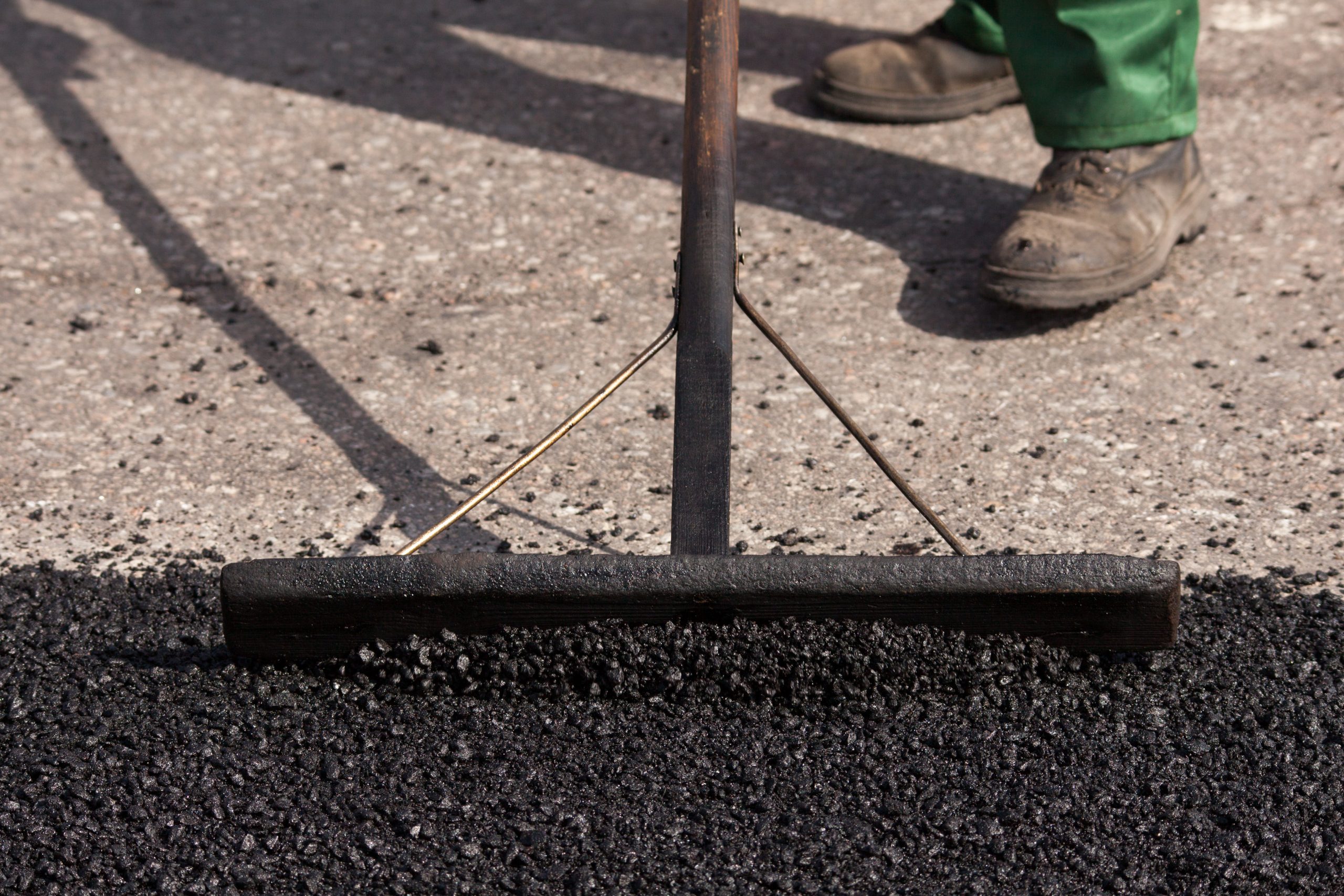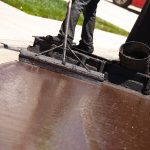My Blog
When Should You Seal Asphalt: Best Practices and Timing
October 25, 2024

Knowing when to seal asphalt is crucial for its longevity and performance. This article will guide you through the best timing and practices for sealing asphalt, ensuring you get the maximum protection for your driveway or pavement. So, when should you seal asphalt? Dive in to understand the perfect time and methods to seal your asphalt.
Importance of Sealing Your Asphalt Driveway
Applying a seal coat to your asphalt driveway is essential not only for enhancing its appearance but also for safeguarding its structural integrity. By using a sealant, you create an impermeable layer that keeps water from infiltrating the asphalt and inflicting extensive damage over time. This waterproof barrier is particularly vital in regions prone to heavy rain or snowfall as it thwarts the formation of cracks and potholes.
Exposure to ultraviolet rays from the sun can render asphalt fragile and susceptible to cracking. A protective coating of sealant acts as a guard against these UV rays, thus preserving your driveway’s structure and considerably prolonging its service life. Regular traffic can accelerate degradation on driveways without this protection. Sealing fortifies them against such wear.
Enhancing curb appeal is another benefit of sealing your driveway—it provides a sleek, rich finish that boosts the property’s visual charm while potentially raising its market value. Sealed driveways present greater cleanliness and uniformity, which simplifies ongoing upkeep and renders them more appealing to future homebuyers. Opting for sealing services offers an economical solution for maintaining both the allure and functionality of your driveway through many years ahead.
Ideal Timing for Sealing a New Asphalt Driveway
Timing is everything when it comes to sealing a new asphalt driveway. Experts recommend waiting 30 to 90 days after installation to allow for optimal sealant application. This period allows the fresh asphalt to cure, ensuring the sealant adheres effectively and offers maximum protection.
In warmer climates, curing may be faster, allowing sealing closer to the 30-day mark. Sealing too early can trap oils in the pavement, creating a weak surface prone to damage.
Monitor the asphalt’s condition and wait until it transitions from shiny black to matte before sealing. This change in appearance indicates that the driveway has fully cured and is ready for sealing.
How Often Should You Seal Your Driveway?
Understanding the optimal intervals for sealing your asphalt driveway is crucial for its durability. Typically, it’s advisable to apply a sealant every two to three years to stave off damage from weather and water exposure, ensuring that your driveway remains in excellent shape.
This frequency can fluctuate depending on certain variables. Driveways subjected to intense use or extreme climatic conditions might need seals applied more frequently. Conversely, less frequent applications may be adequate for driveways experiencing lighter usage and moderate climates.
In cases where the driveway sees minimal traffic and avoids snowplowing activities, a sealing interval stretching between three to five years could be appropriate. Evaluating your circumstances will enable you to establish a tailored maintenance routine for preserving your driveway effectively.
Signs That Your Asphalt Driveway Needs Sealing

It is crucial to be aware of the indications that your asphalt driveway requires sealing to preserve its quality and aesthetic appeal. Evident signs include the emergence of small cracks or a shift in color from a rich black to gray, which signals that the protective sealant has deteriorated, exposing the underlying asphalt.
Should you notice that the surface of your driveway has become rough or displays pitting, this signifies it’s time for reapplication of sealant. The presence of oil stains or similar blemishes also highlights an unprotected state warranting sealing efforts. Addressing such issues promptly can stave off more significant damages like larger cracks and potholes forming on your driveway’s surface—thus averting more extensive and expensive repairs down the line.
Seasonal Considerations for Sealing Asphalt
Selecting the right season for sealing your asphalt driveway is key for optimal results. Apply sealers only when temperatures exceed 50 degrees Fahrenheit to avoid poor adhesion and decreased durability. Ideally, the daytime temperature should be at least 50°F, with no rain forecasted for 24 hours to ensure proper drying.
Sealing typically cannot be done from October 31st through March 31st due to colder temperatures. In regions with extreme weather, sealing may be necessary every 2-3 years to prevent damage. Choosing hot weather without rain is crucial for successful sealing, ensuring the sealant cures properly and offers long-lasting protection.
Preparing Your Driveway for Sealing
Ensuring thorough preparation is crucial for a successful sealant application on your driveway. Begin by removing all detritus, such as leaves, dirt, and any loose stones. Utilizing either a power washer or a cleaner specifically designed for asphalt surfaces will guarantee that the area is impeccably clean and primed for the sealing process.
Before applying the sealant, it’s important to repair existing damage. Use an appropriate filler to take care of larger cracks or large cracks in the surface, while smaller fissures can be treated effectively using crack sealing products. Overlooking this step and sealing over damaged areas may cause more severe problems down the line.
Before proceeding with the actual sealing job, ensure you have addressed stains or other flaws present on your driveway’s surface. Adequately preparing it guarantees that not only will the sealant bond well, but also provide optimal protection against future wear and tear.
The Process of Professional Seal Coating
The expert application of seal coating involves a meticulous process that starts with delivering an accurate estimate, accounting for any additional requirements. Depending on the specific conditions of the asphalt surface, the sealant may be sprayed or manually applied to achieve optimal results.
The effectiveness of sealing is contingent upon utilizing proper materials and equipment as well as conducive weather conditions that promote ideal curing. Typically, applying a second layer in a direction perpendicular to the initial coat is standard practice to guarantee uniform protection and long-lasting resilience.
Apex Asphalt Restoration specializes in providing top-tier professional seal coating services designed to proficiently protect your driveway by ensuring it is thoroughly sealed using high-quality methods and techniques.
Benefits of Regular Maintenance for Asphalt Driveways

Maintaining asphalt driveways regularly provides several advantages. By performing consistent maintenance, you can improve the property’s curb appeal and possibly raise its value by as much as 14%. It is crucial to wait for the appropriate period before applying sealer to avoid peeling or flaking, thus prolonging the life of the asphalt.
Engaging in routine maintenance enables homeowners to identify minor problems before they escalate into more significant and expensive repairs. Implementing an asphalt driveway maintenance schedule allows for cost distribution over time, guaranteeing that your driveway stays in prime condition and safe for utilization.
Environmental and Health Considerations
When maintaining asphalt driveways, it’s vital to acknowledge the potential health and environmental implications of different sealants. Before application, individuals are encouraged to meticulously investigate these products to circumvent any harmful consequences.
In the United States, sustainability efforts are underscored by the annual recycling of more than 100 million tons of asphalt. To Enhance environmental preservation, opting for eco-friendly sealing solutions and adhering to proper care practices for driveways can significantly reduce detrimental impacts.
Copyright © 2025 Apex Asphalt Restoration – All Rights Reserved.


